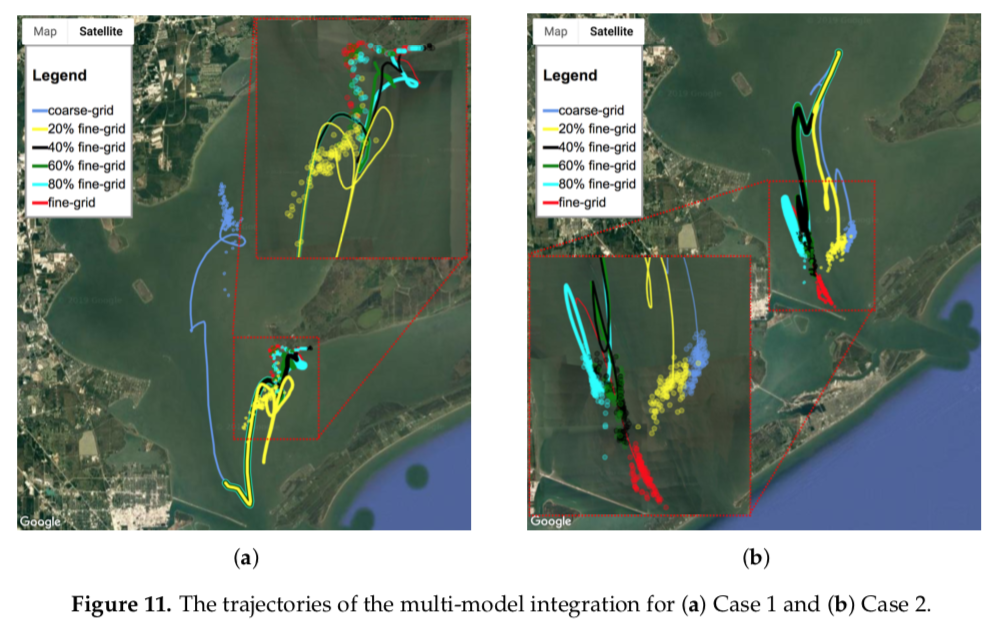Innovative approaches for geometric uncertainty quantification in an operational oil spill modeling system
ABSTRACT: Reliable and rapid real-time prediction of likely oil transport paths is critical for decision-making from emergency response managers and timely clean-up after a spill. As high-resolution hydrodynamic models are slow, operational oil spill systems generally rely on relatively coarse-grid models to provide quick estimates of the near-future surface-water velocities and oil transport paths. However, the coarse grid resolution introduces model structural errors, which have been called “geometric uncertainty”. Presently, emergency response managers do not have readily-available methods for estimating how geometric uncertainty might affect predictions. This research develops new methods to quantify geometric uncertainty using fine- and coarse-grid models within a lagoonal estuary along the coast of the northern Gulf of Mexico. Using measures of geometric uncertainty, we propose and test a new data-driven uncertainty model along with a multi-model integration approach to quantify this uncertainty in an operational context. The data-driven uncertainty model is developed from a machine learning algorithm that provides a priori assessment of the prediction’s confidence degree. The multi-model integration generates ensemble predictions through comparison with limited fine-grid predictions. The two approaches provide explicit information on the expected scale of modeling errors induced by geometric uncertainty in a manner suitable for operational modeling.


